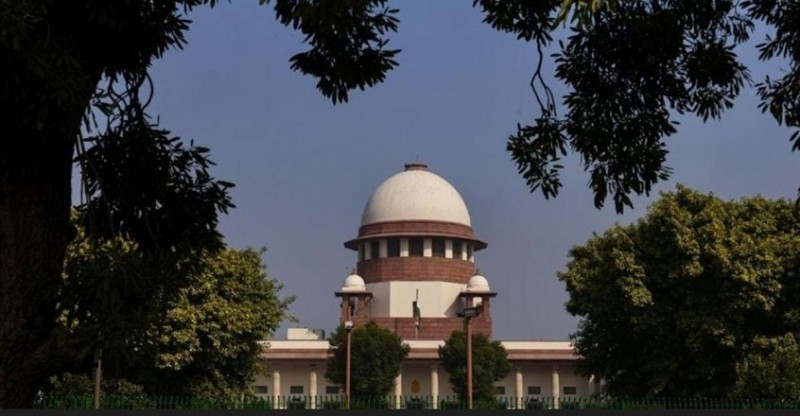
Hearing on bulldozer-related cases began in the Supreme Court on Monday (September 2), with Solicitor General Tushar Mehta presenting his arguments before the bench comprising Justice Gavai and Justice KV Vishwanathan. Mehta stated that the bulldozer actions were carried out under municipal laws and were executed only after providing municipal notice in cases of illegal occupation. Justice Vishwanathan sought a detailed response from the government, emphasizing the need for the government to address concerns regarding notice, action, and other allegations.
The Supreme Court raised serious concerns, questioning the fairness of demolishing someone's house merely based on accusations. The court challenged the government's actions, stating that a house cannot be demolished even if the person is proven guilty of a crime. However, ASG Tushar Mehta clarified that the actions were taken due to illegal occupation or construction, not because of criminal allegations. In this case, Jamiat Ulema-e-Hind filed a petition demanding a ban on the arbitrary demolition of accused persons' homes by the government. Jamiat argued that the government is targeting Muslims, referring to recent bulldozer actions in UP, Madhya Pradesh, and Rajasthan. The petition urged the Supreme Court for an early hearing to halt the trend of "bulldozer justice," as highlighted by senior advocate Dushyant Dave.
A February 2024 report by Amnesty International revealed that 128 properties were demolished between April 2022 and June 2023 following communal violence in Delhi, Assam, Gujarat, Madhya Pradesh, and UP. Properties belonging to the father of an accused in Madhya Pradesh, and properties in Moradabad and Bareilly, were also demolished. Recently, the house of Rashid Khan in Udaipur, Rajasthan, was demolished after his 15-year-old son was accused of injuring his classmate with a knife.
In a recent case in Uttar Pradesh, action was taken against Moeed Khan and servant Raju Khan, accused of raping a 12-year-old minor girl. The bakery owned by Moeed Khan, who is also the city president of the Samajwadi Party, was demolished by the UP Police. The police took immediate action and arrested both accused. Similarly, in Madhya Pradesh, the government led by Mohan Yadav took bulldozer action against accused individuals involved in rape and other crimes. In Chhindwara district, the house of rape accused Mohammad Nafees was demolished, citing illegal construction on government land.
In Chhatarpur, the house of Haji Shahzad, accused of inciting a mob to pelt stones at a police station, was also demolished. Congress Rajya Sabha MP Imran Pratapgarhi raised questions on this matter, yet the silence was deafening until the stone-pelting incident occurred. As soon as the police took action, leaders engaged in appeasement politics began to decry atrocities on Muslims.
In Rajasthan, a minor in Udaipur was accused of killing his classmate by attacking him with a knife. Subsequently, the house of the accused, which was illegally built on forest land, was demolished. In all these cases, it was observed that the accused had committed crimes, leading to bulldozer action against their illegal hideouts. However, Jamiat Ulema-e-Hind is attempting to portray this action as communal, alleging that Muslims are being oppressed. The question arises whether an innocent person, who has returned home after offering Namaaz, has his house bulldozed without any reason. It is clear that some of the criminals against whom action is being taken are Muslims, which is why Jamiat is objecting. However, the Supreme Court has accepted Jamiat's concerns and has ordered not to carry out bulldozer actions even if they are proven guilty, emphasizing that courts exist to grant bail to the culprits. After all, even criminals have human rights. If the culprit is a devout Muslim who prays five times a day, they may receive more leniency. Recently, the Odisha High Court commuted the death sentence of a rapist and murderer to life imprisonment, noting that Sheikh Asif Ali, who was convicted of raping and murdering a minor girl, prays five times a day in jail and has surrendered himself to Allah. Therefore, his sentence was reduced.